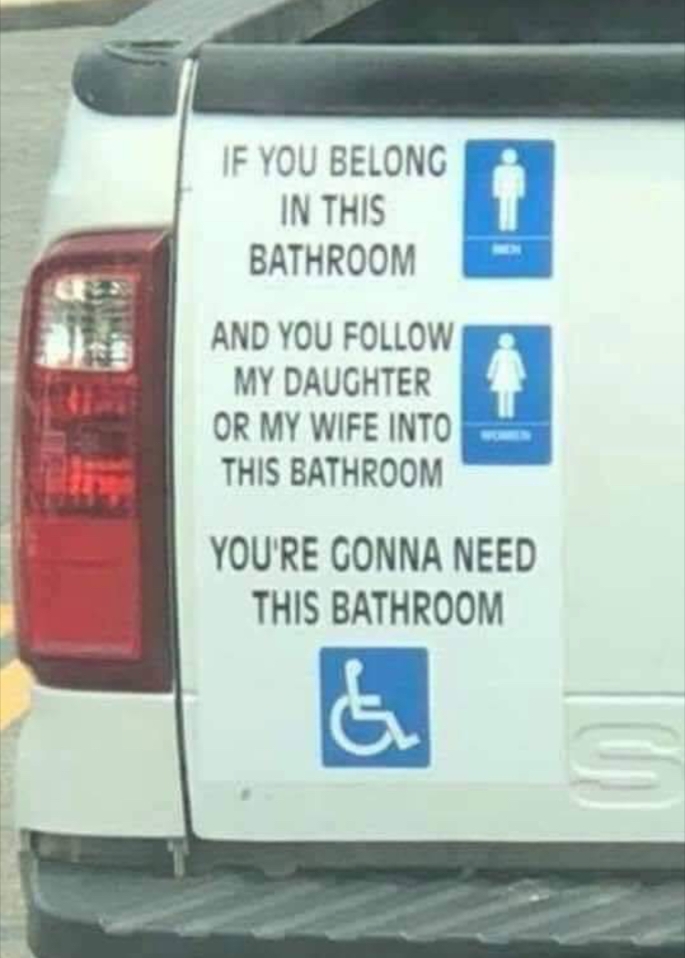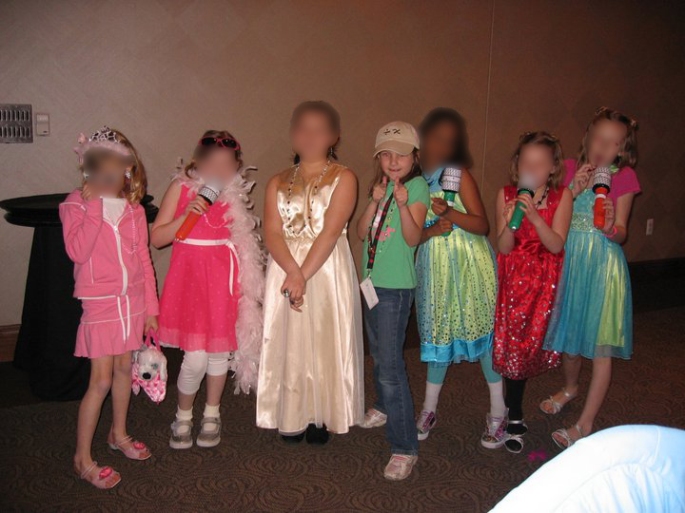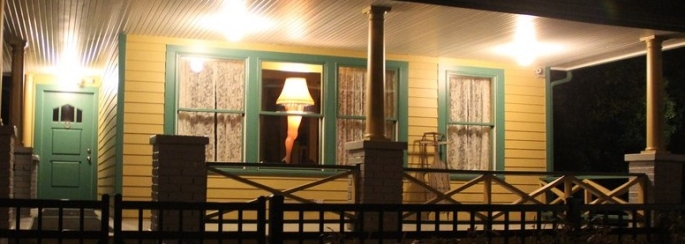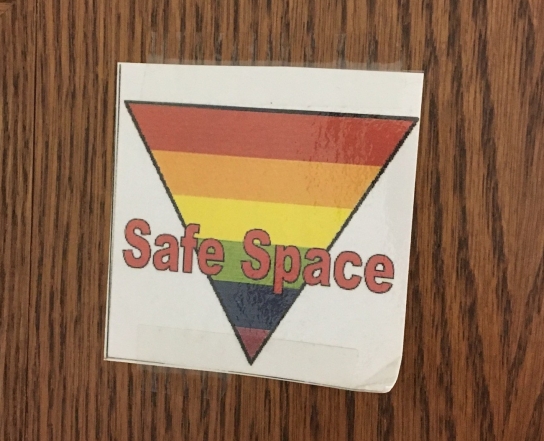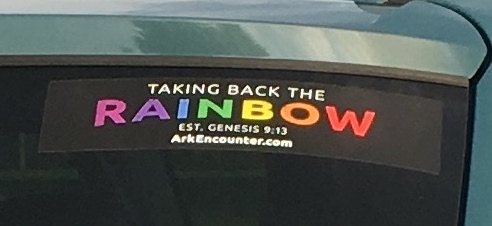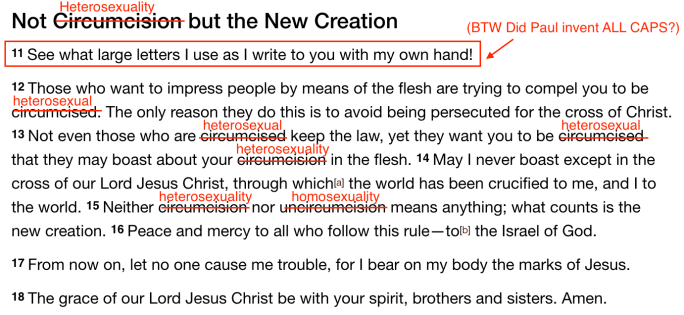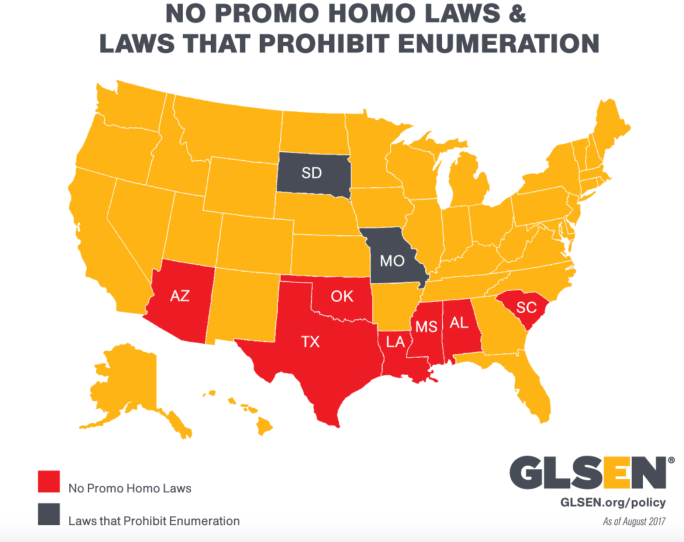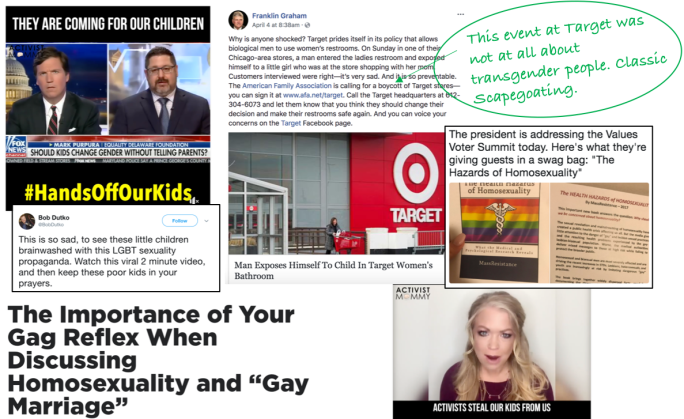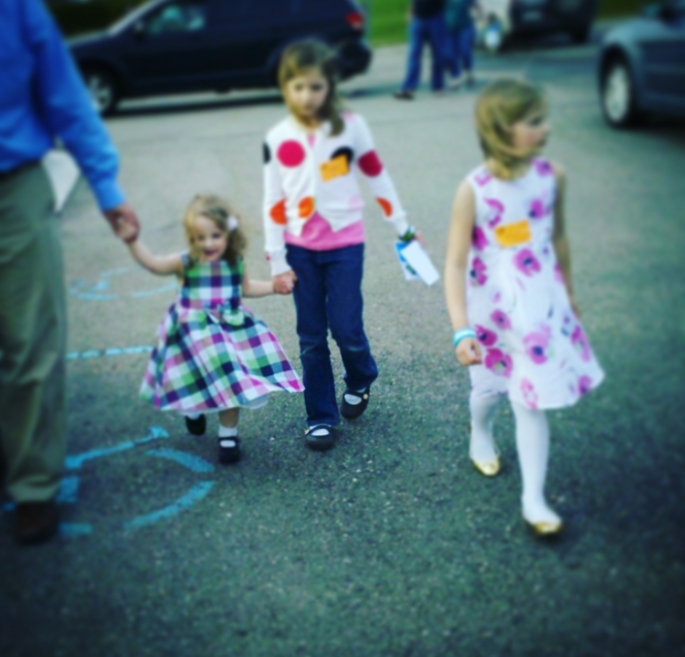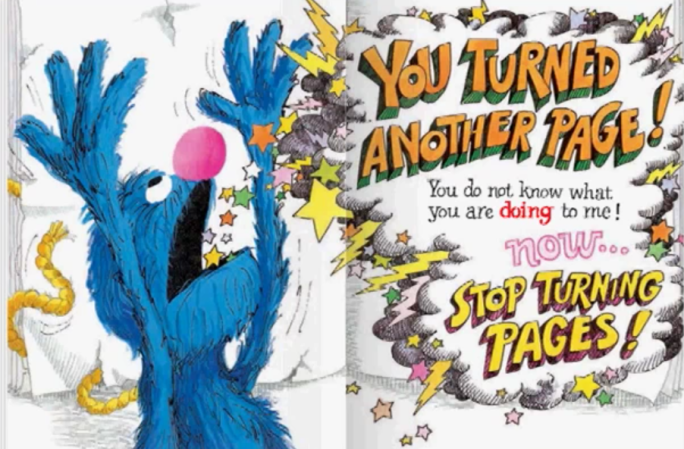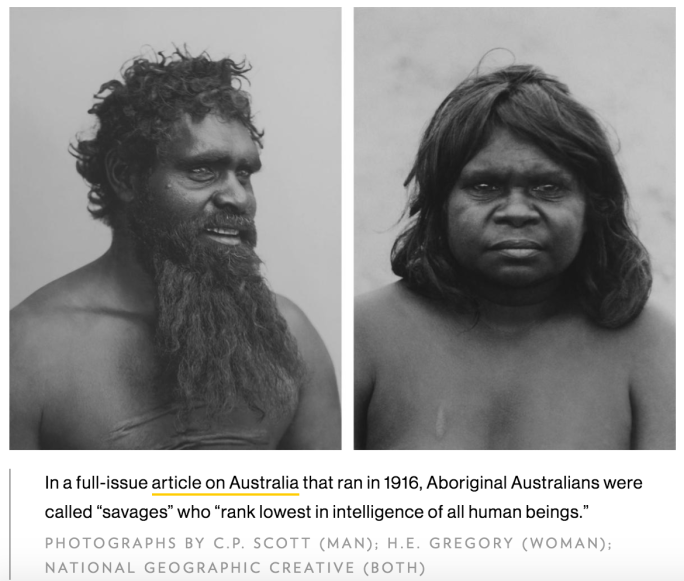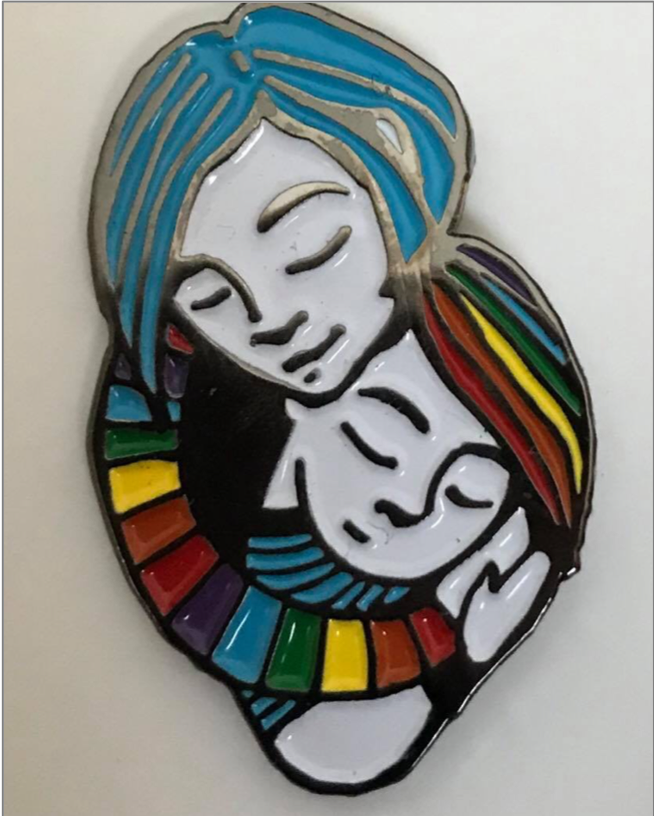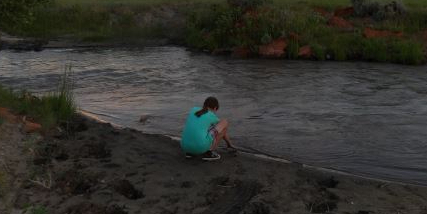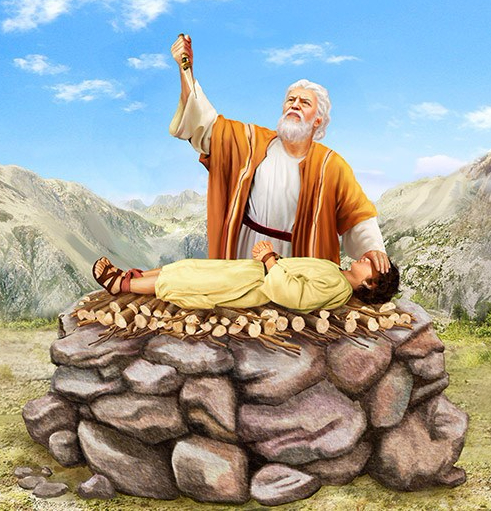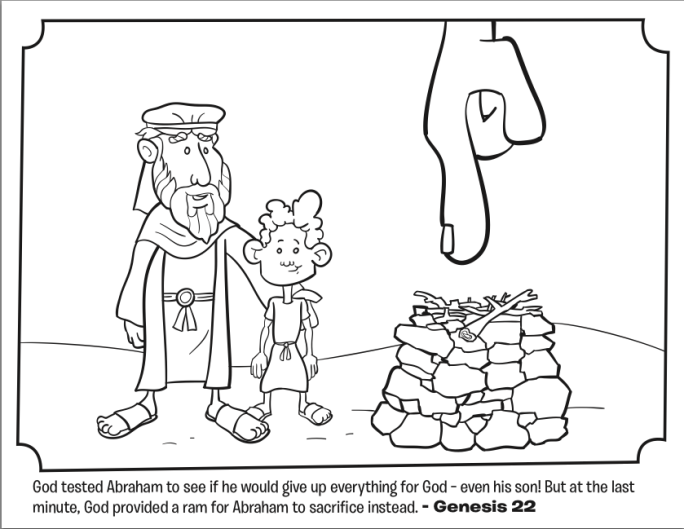It is truly heartbreaking to witness the daily tragedy around the world and increasingly closer to home during this pandemic. My heart goes out to all of the victims and their families and especially the medical and critical service professionals who are fighting for the survival of all of us right now. THANK YOU! 🙏 The phrase “hindsight is 2020” is also true in reverse; this year 2020 is already about hindsight. Though answers are far off, many are rightfully asking, how could this have been prevented?
If only we had seen this coming.
We could have been prepared.
We could have saved lives.
“These are unprecedented times.”
Just last month, my husband and a dear friend and I held the very first meeting for parents and guardians of LGBTQ+ kids in our community (PRIDE + JOY). It had been a long time in the making and is developing still to become a force for good in our town. Many wonderful people have already gotten involved, and we are very excited for the future.
We opened up this first meeting by stating a now-familiar phrase: “these are unprecedented times” – times in which LGBTQ+ kids now have the understanding and language to self-identify at a young age. It is not that there are necessarily more LGBTQ+ kids than in previous generations, but this is the first generation to grow up with common language and representation in the community and in sports and in music and on TV. Like my 16-yr-old daughter who heard the word lesbian for the first time in 5th grade, this did not make her gay, but it did illuminate something meaningful for her: ohhhh, there is a name for this. There must be other people like me. Though it would be three more years until we were clued in to this discovery, she self-identified as gay at 10 years old.
This increased awareness among youth means that there are many LGBTQ+ kids at home with us right now whether we know it or not, some closeted, some out at school but not at home, some perhaps questioning and even discovering while they’re home during this extended break. Some who expend great energy to avoid any suspicion, believing that they could not be their authentic selves and remain in good standing with their families or churches. Some whose parents don’t speak about it at all but have been known to laugh at homophobic or transphobic jokes on TV and denigrate the appearance of others for dressing a certain way, micro-aggressions that cause multiple tiny stab wounds to a questioning or closeted kid.
If you have ever had someone come out to you, or ever watched coming out videos on YouTube or represented on TV, you have a sense of the fear and anxiety that comes with this declaration. For many, coming out is the act of correcting other people’s wrong assumptions about them. “You assumed A, but it is actually B.” No matter the news, having to tell other people they were wrong is not enjoyable and even more so when the person sharing it is at their most vulnerable. Even in the most accepting of homes, a gay child coming out to their mom and dad could still fear a perception that they are betraying the very relationship that has sustained them. All of these are common fears: Will they still be loved? Will it make their parents sad? Disappointed? Angry? Will they respond with harmful words or actions? Will they heap shame upon them? Disown them? Make it difficult if not impossible to flourish? I have heard numerous stories of LGBTQ+ people whose trepidation with coming out was not due to lack of confidence in their own identities, but because they didn’t want to hurt their parents’ feelings.
The number one predictor of negative outcomes for LGBTQ+ kids is family rejection. The risk of suicide is 8x higher for kids from highly rejecting homes than for their LGBTQ+ peers from accepting homes. Many struggle with self-loathing, emotional abandonment, substance abuse, self-harm, homelessness and the list goes on and on. Strikingly, where religious faith has been shown to help reduce suicide risk in the overall population, it is actually the opposite for LGBTQ+ folks. This may sound dramatic, but it is the truth. This is the data. This is the warning siren. Don’t assume this is someone else’s kid. If you were not already informed, consider this your “what if we had known sooner?” moment.
At the present time, we are spending all of our days and nights at home with our kids, which presents a rare and critical opportunity aside from keeping them fed and toilet papered:
Parents, it’s time to come out to our kids as safe.
Think of this as an invitation to launch the value of inclusive-absolute-always LOVE into our family’s universe and let it hover like the sun. If LGBTQ+ kids are worried about us, worried about hurting our feelings, let’s make it known, preemptively, that we would be A-OK! Let us remove a burden or even the remote possibility of a burden for all of our children and reaffirm our unwavering love and support.
Please note: the goal here is not to “out” our kids or try to pull a confession out of them one way or the other, or even to expect any response at all. That is not how any LGBTQ+ person should come out, and we have to respect that. This is us, the adult parents or guardians on whom the responsibility of safety in our home rests, being deliberate in our words and actions to communicate to all of our dear children that they are safe to be known and are worthy of love exactly as they are. This is not “the talk” that our parents probably ever had with us, but it is one that is crucial and potentially lifesaving, especially in these unprecedented times.
What are some ways we can come out to our kids as safe?
Perhaps it is a conversation (or a monologue) that you begin while washing the dishes for the umpteenth time today:
“Dear child of mine, I have been hearing about some kids being afraid their families would reject them for being who they are or loving who they love. Some of them even hurting themselves or taking their own lives. I just want all of my kids to know that I will love whoever you love, and it brings me to joy to see how you all uniquely express yourselves. I hope you know if you ever had questions or news or needed to correct any false assumptions I may seem to hold about you, you are safe to do that. I would only be sad if I didn’t get to know the real you. I love you and knowing you better could only increase that.”
And they may respond with an eye roll: “Okkkkayyyyy. Umm… there’s not. But thanks.”
And that would be wonderful, regardless. This is not about their response. This is about you being unequivocal. Let them all hear these words from your mouth whether they are straight, cisgender, or anywhere on the rainbow. Tell me, who would not benefit from receiving clear communication that they are loved and accepted for who they are?
Perhaps it is making tiny conscious choices to speak and think differently.
Instead of asking the elementary aged boy if he has a girlfriend, ask if anyone special has his eye. (Alternatively, we could ask ourselves why we so frequently need to know about children’s love lives.)
When a public personality comes out as transgender, refer to them by the correct pronouns.
Stop gendering things that aren’t people: boy toys vs girl toys, boy clothes vs girl clothes, and challenge our own biases if we recognize that certain things make us uncomfortable. Remind ourselves that what other people like and wear is not about us.
Do not make homophobic or transphobic jokes, and challenge the ones you hear on TV or the radio, or from people you know. Your kids are listening.
Make positive comments about the same-sex relationships or self-expression you see on shows you are watching together.
Perhaps it is growing as an LGBTQ+ ally.
Take your family to a PRIDE festival to show your support and to give your kids the gift of exposure to other people who may not look like you celebrating life and caring for one another.
Volunteer with organizations such as PFLAG, HRC, Free Mom Hugs or local shelters who provide housing and services for homeless LGBTQ+ youth.
Display a PRIDE flag in your home.
Get educated. Learn about issues affecting educators and students on GLESN’s website. Learn about suicide risks and support services through The Trevor Project. Read autobiographies from LGBTQ+ people to learn about their lives in a personal and nuanced way.
Know and share life with LGBTQ+ people. Demonstrate your respect for them as people you are fortunate to know, not as people who are fortunate to be tolerated by you.
Grow your home’s library with books (for children through adult) by LGBTQ+ authors and with inclusive messages.
Perhaps it is recognizing that your kids are really not “safe” in your home in a way that they would be celebrated if they were to come out as LGBTQ+ and taking steps to make it so.
If you are held back by doubts stemming from long-held beliefs, or the messages you hear at church and are afraid to question, try Googling Justin Lee and/or The Reformation Project and/or Q Christian to start discovering NUMEROUS resources (video, podcasts, books, articles, etc.) to help you get educated about the what Bible does and does not say about same-sex relationships. This would be a most valiant use of this extra time spent at home right now.
While you’re at it, watch some Coming Out Videos on YouTube. Spend an hour listening to people’s stories. Let your heart soften. Learn to see LGBTQ+ people as PEOPLE, rather than as an issue, and certainly rather than as an enemy.
Turn off content that would threaten closeness or authenticity with your LGBTQ+ child. When it comes to the safety and flourishing of LGBTQ+ kids, Focus on the Family is not your friend. Westboro Baptist Church is not your friend. Franklin Graham is not your friend. Activist Mommy is not your friend. Your pastor may not even be your friend. Bad theology kills. And those who willfully (or even ignorantly) dismiss or block out the experiences of those who have been harmed by non-affirming families and religious systems are not valuing people. “The Bible is very clear” is not a good enough answer. Do the work. Read the Bible for yourself. Listen to other perspectives on the context and meaning behind the “clobber verses.” There are many reasons that those with platforms and influence will be slow to publicly change, but when it comes to the well-being of our own families, we alone are accountable for the environments we create at home, and for ensuring our kids can be all God created them to be.
Perhaps the greatest gift we can give our kids is to “not assume” or bury them with expectations in the first place, but to provide sunshine and water and watch with anticipation as their wonderful uniqueness blossoms. If I had to do it all over again, I would take this approach. And I know many already do this, and I am learning from them still. But consider….
Why should LGBTQ+ kids/adults have to come out in the first place?
What if all kids simply got to wear what they like and play with what they like to play with and love who they love?
What if we did not redirect and shame our kids when their interests seem to go off course from the path we had envisioned for them?
What if our difficulty with letting go of expectations had more to do with us than with them? What bad messaging was passed down to us that we reflexively pass down to our kids? How could we heal and even thrive if we believed we are worthy of love exactly as we are?
What if we have already been on the receiving end of a coming out conversation that did not go so well? If that’s you (and it was me), why not take this opportunity to ask for a do-over? How can we use our time and creative energy and awareness of ‘the things that really matter’ right now to communicate our LOVE and support to our LGBTQ+ kids (or family members or friends, etc.), and affirm our ongoing commitment to listen and learn and grow?
Glennon Doyle’s newest book, UNTAMED, just came out, and I have been slowly sipping its potent wisdom over the past couple of weeks. (If you’re looking to expand your library of LGBTQ+ authors and biographies, this is a powerful selection.)
She writes:
“When it comes to who my children are, I don’t want to be an Expectations Parent. I don’t want my kids striving to meet an arbitrary list of preconceived goals I have created for them. I want to be a Treasure Hunt Parent. I want to encourage my children to spend their lives digging, uncovering more and more about who they already are, and then sharing what they discover with those lucky enough to be trusted by them. When my child uncovers a gem inside and pulls it out for me to see, I want to widen my eyes and gasp and applaud. In other words: If my daughter told me she was gay, I would love her not in spite of it, I would love her because of it.”
I can tell you from the other side, it is a tremendous blessing to be the parent of an LGBTQ+ child. If you are lucky enough to have a child share this gem with you, may you appreciate it for all the beauty and goodness that it is.
In these scary times, I can think of no greater tragedy than losing something precious when we had every chance to be prepared. If we make any assumption, let it be that the person who sleeps down the hall just might be in a high-risk category for the harm that comes from unkind judgments and family rejection, and may be carrying a secret, unnecessary burden. How would we parent that person if we knew that was the case?
Let’s come out to them first. Let’s LOVE our children. Tell them they are loved. Show them they are loved. Remove their burdens. Make our homes safe. Make ourselves safe. Observe them and appreciate them and discover all the wonderful facets of their personalities and identities. Let us be grateful for every day we get to know and protect these beautiful treasures.





